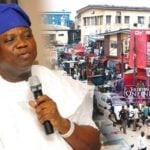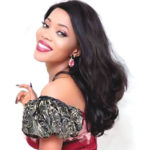IT was time well spent for the literati on the afternoon of August 6 when eight out of the 11 writers on the long list of the 2017 Nigeria Prize for Literature were showcased at Terra Kulture Arena, Victoria Island, Lagos.
It was the eighth book party organised by the Committee for Relevant Art (CORA), with the support of the Nigeria LNG Limited, sponsors of the prize worth $100,000 and which rotates annually among poetry, prose, drama and children’s literature.
While Ebi Yeibo (Of Waters and The Wild), Hyginus Ekwuazi (One Day I’ll Dare to Raise My Middle Finger at the Stork and the Reaper) and Abubakar Othman (Blood Streams in the Desert) did not make the event, the others were around to share about their works, motivations and writing in indigenous languages among other issues with the audience.
Ikeogu Oke (The Heresiad), Tanure Ojaide (Songs of Myself Quartet), Jumoke Verissimo (The Birth of Illusion), Obari Gomba (For Every Homeland) and Ogaga Ifowodo (A Good Mourning) were among the participants in the interaction moderated by poet and journalist, Akeem Lasisi. The others were Peter Akinlabi (Iconography), Seun Lari-Williams (Garri for Breakfast) and Humphrey Ogu (Echoes of Neglect).
Oke, the first to speak after Lasisi asked the poets what they were sharing with the readers in their collections, began with an explanation of the title which General Manager, External Relations of LNG, Kudo Eresia-Eke, had earlier cited. ‘The Heresiad,” he said, was coined from the word heresy and that it’s a single poem that runs over 100 pages. The poems in the collection, he added, are about freedom of expression, worship and promotion of peace.
Seun, a lawyer and son of the actor, Lari Williams, disclosed that his ‘Garri for Breakfast’ contains 54 poems with topics that reflect the reality of a young Nigerian man and experiences with the law. They are essentially, he said, “simple poems; nothing obscure.”
‘Songs of Myself Quartet’, Professor Ojaide explained, originates from the Orodje tradition of his Urhobo people who believe in self criticism before criticising others. The collection divided into four parts, he said, “is a re-examination of the self before looking at others.”
For Verissimo, the poems in ‘The Birth of Illusion’ “talk about our elusive reality and they are based on my observations over 10 years.”
Gomba, a literature and creative writing lecturer at the University of Port Harcourt, said he deliberately created voices that are interfacing with the community in ‘For Every Homeland’. “I created personas that are interfacing and arguing for our shared humanity,” he said.
Author of A Good Mourning, Ifowodo on his part, disclosed that he took inspiration from the philosopher Hannah Arendt, author of The Banality of Evil and also the June 12 debacle. “The poems are dedicated to conflicts in the world and seeing that some of the poems are grim, I included some personal ones but the general motif is how evil tends to be.”
“Iconography looks at how the mind of the poet is born; at hidden histories of places, objects and people and attempted to amplify these,” said Akinlabi of his work.
For Ogu, a thread of neglect passes through all the poems in ‘Echoes of Neglect’, which also talks about love and has a section written in pidgin.
Speaking further about The Heresiad, Oke, who was attired like an Igbo warrior, revealed that the poem took about 27 years to write from the first line to the last line. “I thought I had finished the poem after 10 years and already gave it out to the publisher before I called him to ask if I can still make some corrections. Every line can be sung because it is set to music.”
Asked to expatiate on personal experiences that influenced his poems and elaborate on what he meant by obscurantism in poetry, Seun said: “I grew up reading poetry and often came across materials that were not us. But it was good reading the works and listening to people around, I noticed that a lot of young people lost interest in poetry; we are more into videos so I decided to write what they can relate to. And I decided to make it simple and accessible because this is our reality. However, it is difficult to write simple.”
On his pre-occupation with oral heritage, Ojaide explained that some of his techniques and style had to do with what he’s saying. “What’s poetic is not necessarily the difficulty of the words; musicality and quotable lines are what people take away from poems.”
Ifowodo, recently appointed a member of the NDDC board responded to a query on why his poem on Chief MKO Abiola is just coming out in the collection: “I was letting it sit so as not to write in the heat of the moment; so that sentiment, emotion doesn’t overcome what I want to say.”
A question from veteran actor, Dejumo Lewis, on if the poets could write in their indigenous languages drew interesting responses.
Verissimo said: “Actually, I will really be confusing more people if I try to write in Yoruba. I don’t think I will be writing literate Yoruba if I were to write in it. The Yoruba that I would write will be one that recreates the language. But I am already doing that with the English language because I’m recreating the language using my indigenous language. So, I am creating English in a new form and that is the essence of language. It evolves. A lot of the words we use in our English today are through literature.”
Ifowodo said he would have been elated to write in Isoko but that doing so would mean writing for a small audience. “We take it for granted that every Isoko person, Yoruba, Igbo is literate in his language and can read and understand at the level of literature, not at the level of just social communication. Poetry, of course, is the most difficult of the genres since it thrives in figurative use of language. So, how many market women can read poems I write in Isoko and understand it? If I start my project in Isoko, I am afraid I might be speaking to only myself,” he said.
Oke supports producing literature in indigenous languages, adding that he is proficient enough in Igbo to write poetry in it. He and Akinlabi, who said “not many people would understand” if he writes in Yoruba, later did poems in their languages
For Gomba, English can co-exist with indigenous languages while they feed off on each other. “No language is indigenous,” he stated.
Professor Ojaide disclosed that he decided to write in English but “it is being mediated by my own language.”
Poet Odia Ofeimun, who was among those who intervened, reiterated his belief in Nigerian languages but added that a poet should make the best use of whatever language he/she is using.
Earlier, while welcoming guests, secretary General of CORA, Toyin Akinosho, explained the body’s partnership with the NLNG for the book party. He said that more than creating a community of book-lovers and an economy around the book trade, CORA’s passion was to always expand the membership of the community of culture patrons.
Also speaking at the event which featured performances but where the poets were not allowed to read from their works themselves, Eresia-Eke of the NLNG said: “The Cora Book Party is a meeting point for publishers, critics and book lovers. It offers closer and personal interaction with the authors of the shortlist and reassures Nigeria LNG that we are achieving the right influence in driving excellence within our literary circle.”






